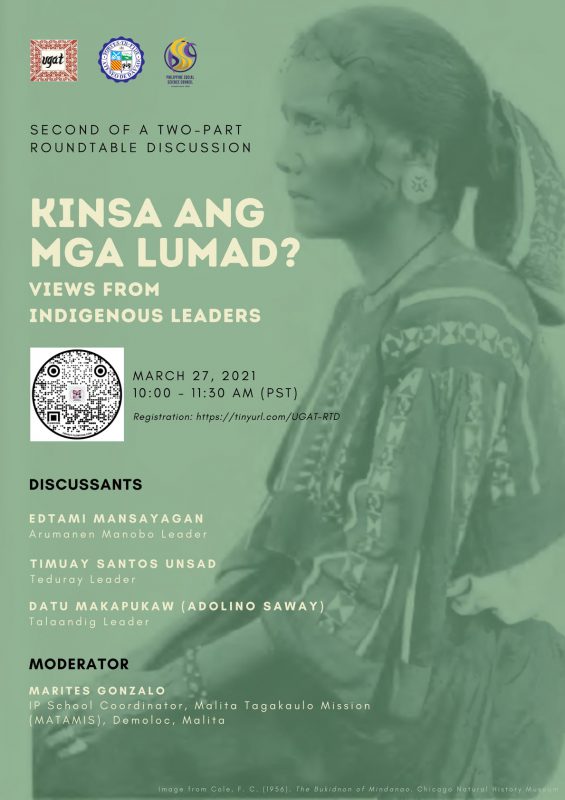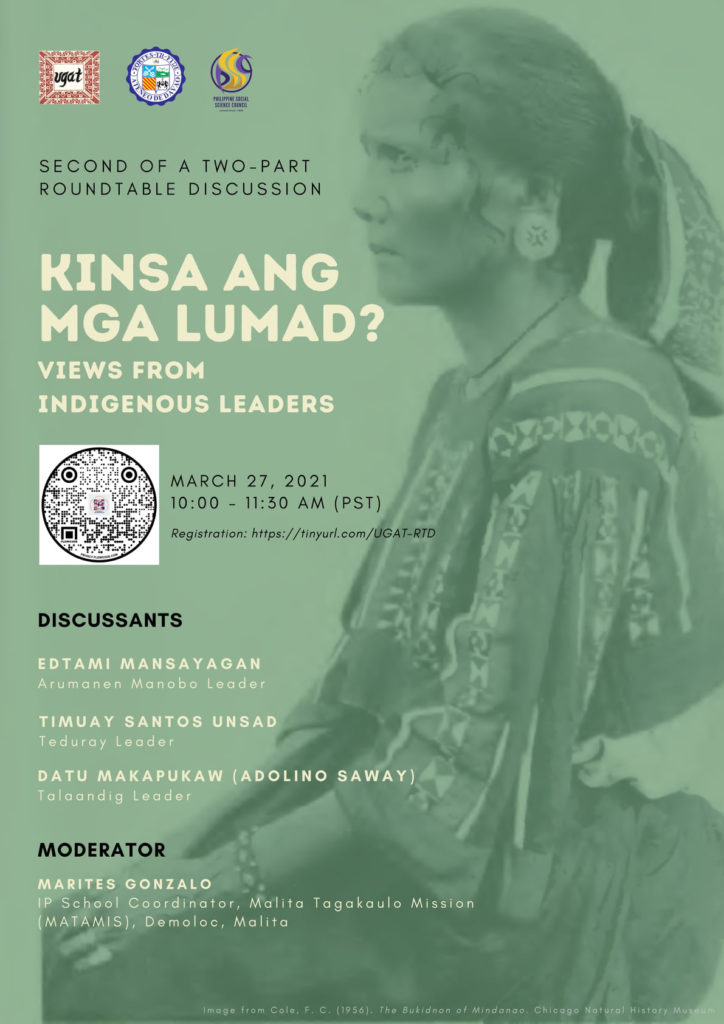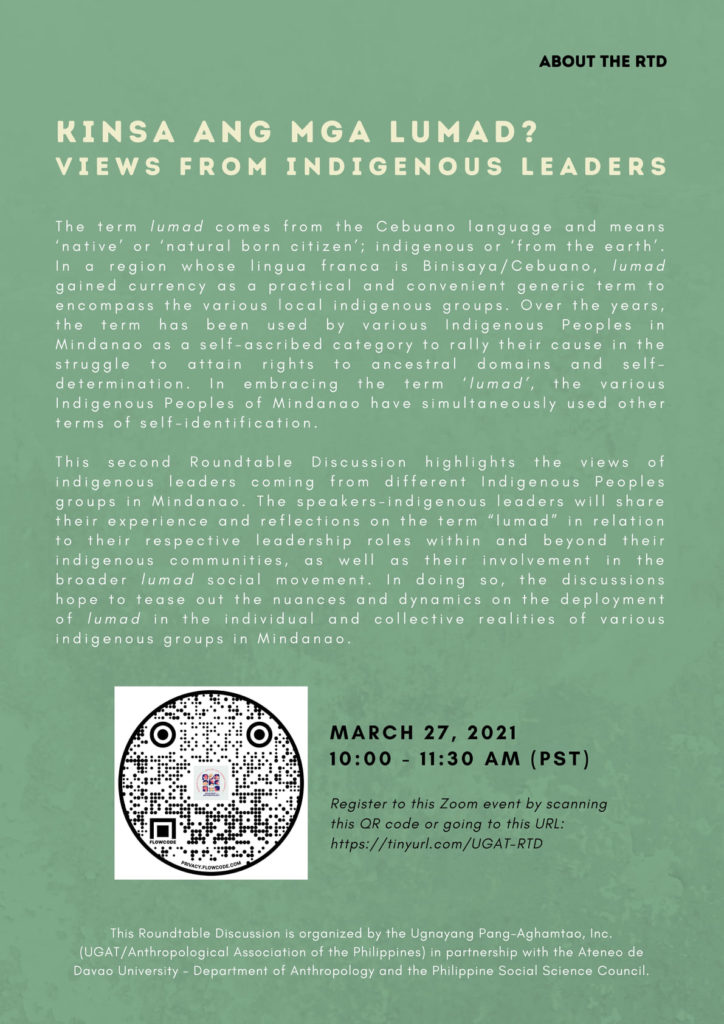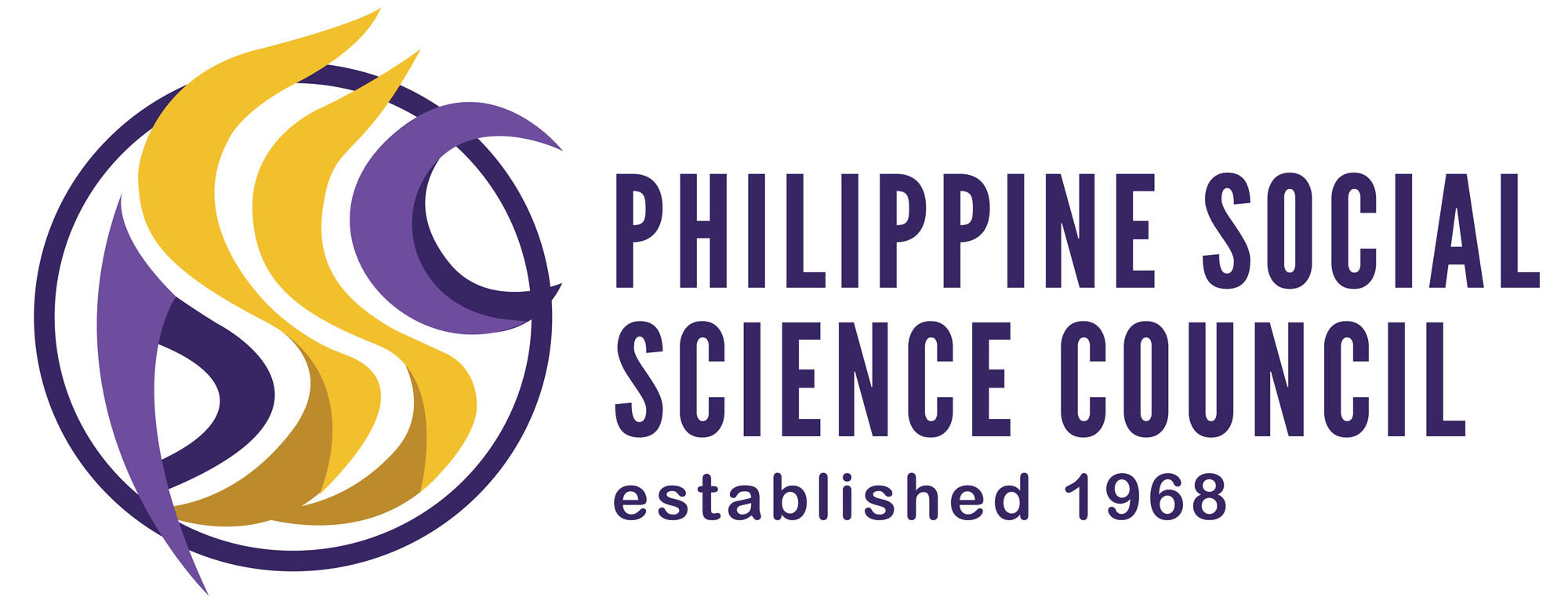Kinsa ang mga Lumad? Views from Indigenous Leaders
- Posted on



Kinsa ang mga Lumad? Views from Indigenous Leaders
Second of a Two-Part Round Table Discussion
March 27, 2021 | 10:00 AM to 11:30 AM
The term lumad comes from the Cebuano language and means ‘native’ or ‘natural born citizen’; indigenous or ‘from the earth’. In a region whose lingua franca is Binisaya/Cebuano, lumad gained currency as a practical and convenient generic term to encompass the various local indigenous groups. Over the years, the term has been used by various Indigenous Peoples in Mindanao as a self-ascribed category to rally their cause in the struggle to attain rights to ancestral domains and self-determination. In embracing the term ‘lumad’, the various Indigenous Peoples of Mindanao have simultaneously used other terms of self-identification.
This second Roundtable Discussion highlights the views of indigenous leaders coming from different Indigenous Peoples groups in Mindanao. The speakers-indigenous leaders will share their experience and reflections on the term “lumad” in relation to their respective leadership roles within and beyond their indigenous communities, as well as their involvement in the broader lumad social movement. In doing so, the discussions hope to tease out the nuances and dynamics on the deployment of lumad in the individual and collective realities of various indigenous groups in Mindanao.


Kinsa ang mga Lumad? Views from Indigenous Leaders
Second of a Two-Part Round Table Discussion
March 27, 2021 | 10:00 AM to 11:30 AM
The term lumad comes from the Cebuano language and means ‘native’ or ‘natural born citizen’; indigenous or ‘from the earth’. In a region whose lingua franca is Binisaya/Cebuano, lumad gained currency as a practical and convenient generic term to encompass the various local indigenous groups. Over the years, the term has been used by various Indigenous Peoples in Mindanao as a self-ascribed category to rally their cause in the struggle to attain rights to ancestral domains and self-determination. In embracing the term ‘lumad’, the various Indigenous Peoples of Mindanao have simultaneously used other terms of self-identification.
This second Roundtable Discussion highlights the views of indigenous leaders coming from different Indigenous Peoples groups in Mindanao. The speakers-indigenous leaders will share their experience and reflections on the term “lumad” in relation to their respective leadership roles within and beyond their indigenous communities, as well as their involvement in the broader lumad social movement. In doing so, the discussions hope to tease out the nuances and dynamics on the deployment of lumad in the individual and collective realities of various indigenous groups in Mindanao.


Kinsa ang mga Lumad? Views from Indigenous Leaders
Second of a Two-Part Round Table Discussion
March 27, 2021 | 10:00 AM to 11:30 AM
The term lumad comes from the Cebuano language and means ‘native’ or ‘natural born citizen’; indigenous or ‘from the earth’. In a region whose lingua franca is Binisaya/Cebuano, lumad gained currency as a practical and convenient generic term to encompass the various local indigenous groups. Over the years, the term has been used by various Indigenous Peoples in Mindanao as a self-ascribed category to rally their cause in the struggle to attain rights to ancestral domains and self-determination. In embracing the term ‘lumad’, the various Indigenous Peoples of Mindanao have simultaneously used other terms of self-identification.
This second Roundtable Discussion highlights the views of indigenous leaders coming from different Indigenous Peoples groups in Mindanao. The speakers-indigenous leaders will share their experience and reflections on the term “lumad” in relation to their respective leadership roles within and beyond their indigenous communities, as well as their involvement in the broader lumad social movement. In doing so, the discussions hope to tease out the nuances and dynamics on the deployment of lumad in the individual and collective realities of various indigenous groups in Mindanao.
